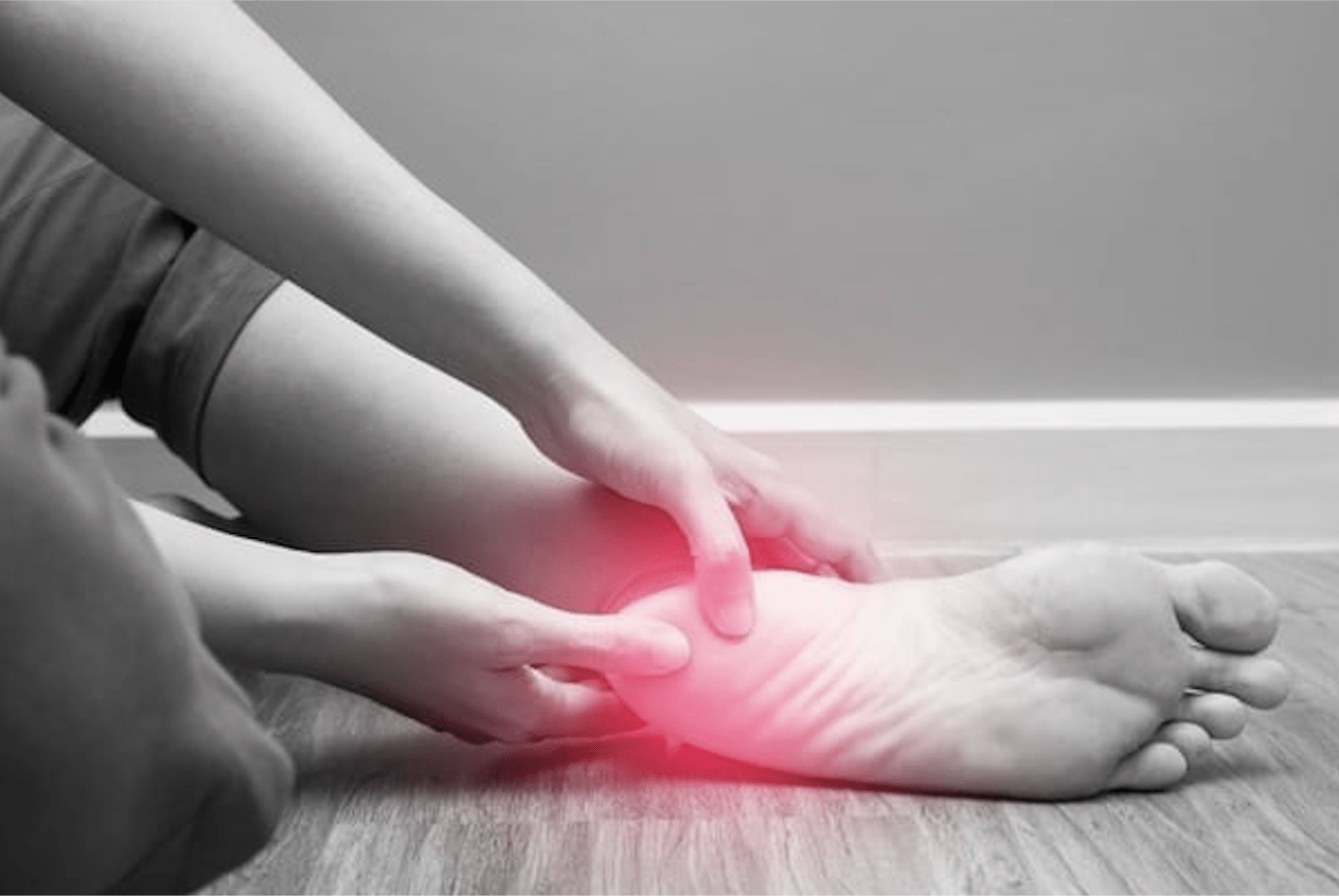Heel Pain

Plantar Fasciitis
One of the most common causes of heel pain is a problem called “plantar fasciitis”. Plantar fasciitis is the term doctors use when a part of the foot called the plantar fascia gets irritated or inflamed, or tears. The plantar fascia is a tough band of tissue that connects the heel bone to the toes and runs along the bottom of the arch.
Heel pain caused by plantar fasciitis is very common, and with the proper treatment it will resolve. This often affects active, or people who stand for long periods.
Symptoms
The most common symptoms of plantar fasciitis include:
- Pain on the bottom of the foot near the heel
- Pain with the first few steps after getting out of bed in the morning, or after a long period of rest, such as after a long car ride. The pain subsides after a few minutes of walking.
- Greater pain after (not during) exercise or activity
Risk Factors
Are 40 to 60 years old
Have flat feet or high arches
Have tight Achilles tendons, or Tight calf muscles
Often wear high-heeled shoes
More common in females
Treatments
- Rest – Give your foot a chance to heal by resting. Standing or being active for long periods will make it difficult for your pain to resolve.
- Ice – Putting ice on your heel for 20 minutes up to 4 times a day might relieve pain. Icing and stretching your foot before exercise might also help.
- Exercises – Stretching exercises when you first get up, and any time you are seated can help with heel pain.
- Steroid – A oral steroid can be prescribed, or if your pain is severe an injected steroid will be administered. This will lessen your pain before you walk out of the office.
- Wear sturdy shoes – Sneakers with a lot of cushion and good arch and heel support are best. Shoes with rigid soles can also help. Adding a custom or over the counter orthotics will help reduce tearing, and inflammation to the plantar fascia.
- Taking pain-relieving non-steroidal anti-inflammatories (NSAIDS) like Ibuprofen or Naproxen. You shouldn’t take these for more than a month
- Wear splints at night – Some people feel better if they wear a splint while they sleep that keeps their foot straight. This will stretch your plantar fascia
